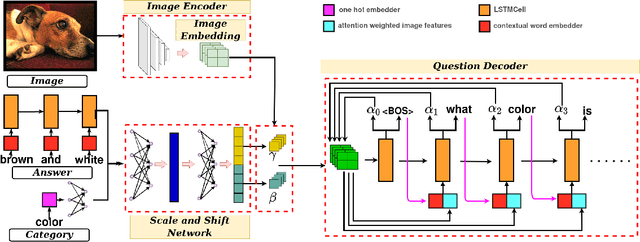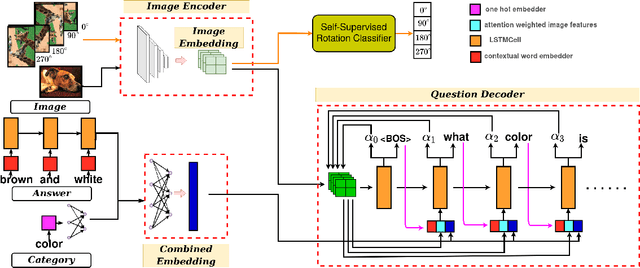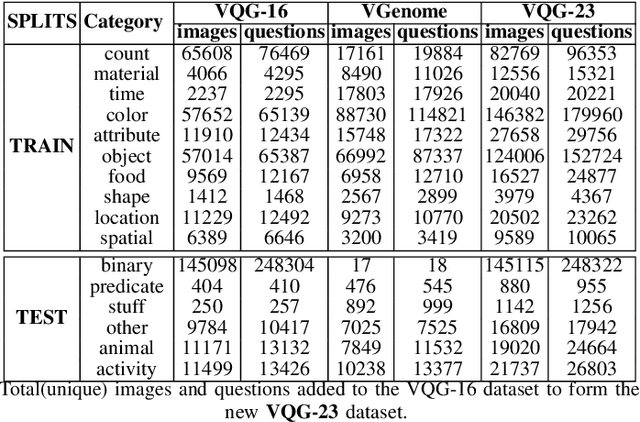David Johnson Ekka
Few-Shot Visual Question Generation: A Novel Task and Benchmark Datasets
Oct 13, 2022



Abstract:Generating natural language questions from visual scenes, known as Visual Question Generation (VQG), has been explored in the recent past where large amounts of meticulously labeled data provide the training corpus. However, in practice, it is not uncommon to have only a few images with question annotations corresponding to a few types of answers. In this paper, we propose a new and challenging Few-Shot Visual Question Generation (FS-VQG) task and provide a comprehensive benchmark to it. Specifically, we evaluate various existing VQG approaches as well as popular few-shot solutions based on meta-learning and self-supervised strategies for the FS-VQG task. We conduct experiments on two popular existing datasets VQG and Visual7w. In addition, we have also cleaned and extended the VQG dataset for use in a few-shot scenario, with additional image-question pairs as well as additional answer categories. We call this new dataset VQG-23. Several important findings emerge from our experiments, that shed light on the limits of current models in few-shot vision and language generation tasks. We find that trivially extending existing VQG approaches with transfer learning or meta-learning may not be enough to tackle the inherent challenges in few-shot VQG. We believe that this work will contribute to accelerating the progress in few-shot learning research.
 Add to Chrome
Add to Chrome Add to Firefox
Add to Firefox Add to Edge
Add to Edge